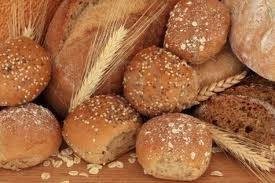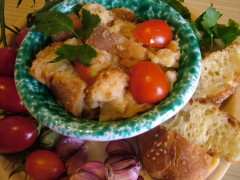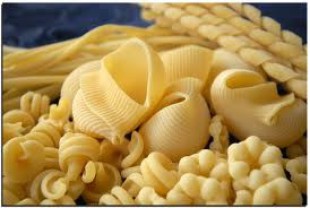BREAD
Bread
A little bit of History
Although Bread, in one form or another, is one of the oldest prepared foods, dating back to the Neolithic era, the ancient Egyptians are recognized as the true inventors of the bread. They were making the dough smooth by trampling on it with the feed following the music, then they would cook the bread on hot stones. It was also them who observed the phenomenon of fermentation and spread the use of sourdough. They were so skilled in the art that they made over fifty different types of bread adding poppy seeds, sesame and camphor. The bread was used as money or to bargain. A priest of the temple was paid with 360 pitchers of beer, 900 loaves of bread and 30 thousand cakes cooked on the coals.
It was an essential food for the Egyptian civilization, but also Greek and Roman and later North Africa. Athens produced 140 varieties of bread. Later, Israel build on the bread all its religious and social laws.
Origin of the name
The name “pane” (bread) comes from the Latin “panis” which means food, protection, support.
The English word bread is probably derived from the root of the word brew.
Health benefits
Bread protects against cancer and cardiovascular diseases. It is what is contained in the crust that encourages growth, repair tissues and produce antibodies, hormones, enzymes that our body is not able to produce on its own.
The wholegrain bread contains fiber, that takes longer to chew and that alone could help limit consumption, besides the health benefits:
- Bowel function – prevents constipation; inhibits intestinal tumour cells, less risk of diverticulitis or hemorrhoids and bowel cancer.
- Blood glucose levels – reduces postprandial glycemic peak, better control of blood glucose.
- Cholesterol - lowers LDL (bad cholesterol)
Info and Curiosity
There are many idiomatic expression in Italy that refer to bread:
- Buono e semplice come il pane - Good and simple like bread - a person with a good heart;
- Per un tozzo di pane - For a loaf of bread - at a very low price;
- Esser pane e cacao - Be bread and cheese -to have close acquaintance, eat together;
- Mangiare il pan pentito - To eat repentant bread - be sorry for the bad done;
- Mangiare il pan del dolore - To eat the bread of sorrow - to live a hard live;
- Mangiare il pane a tradimento - To eat treason bread - to eat bread without working for it;
- Render pan per focaccia - Give back bread for cake - render tit for tat;
- Tornare al pan duro - Return to hard bread - return to be poor;
- A tempo di carestia pan di vecce - In a time of famine, bread of vetches - in a time of necessity one appreciates what would not be good in times of abundance.
Cooking Tips
Nonna Angelina used to say: don’t throw away left over bread: it’s a sin!
There are many things you could do with it. Make breadcrumbs and use it to put over the pasta instead of cheese; make bruschetta or make a delicious meal….




